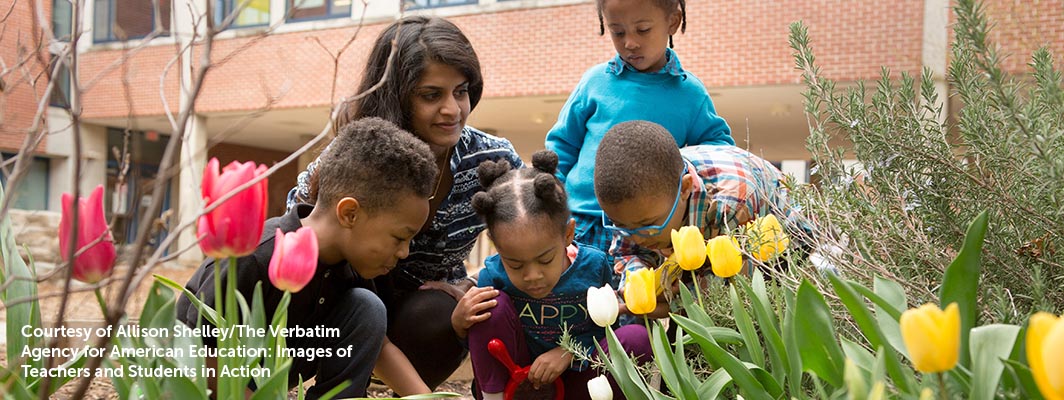EcoXPT is a rich immersive technology and inquiry-based curriculum that teaches ecosystem science while seeding the ground with the kind of deeper-learning strategies seen as critical to a 21st-century education.
The EcoXPT Experience
With EcoXPT — now being tested in classrooms (see a video from a pilot site below), and available to educators perhaps as early as the fall of 2018 — middle school students use a virtual reality program to investigate why all the large fish in a virtual pond have died. It’s a similar premise to EcoMUVE, EcoLearn’s first-generation program, but now students can go beyond making observations to actually conducting simulated experiments, and they have a much larger, more varied ecosystem to analyze.
Using virtual experimental tools, students can examine weather patterns and manipulate weather models to help them to understand how they affect variables at the pond. They can track the movement of chemicals and other matter in the watershed, measure algae populations, and compare how different species of fish react to substances in the environment.
Practicing Real Science
For educators seeking materials that support 21st-century learning goals, experiential curricula like EcoXPT may forecast the future of STEM. Historically, middle and high school students have learned science through lectures, textbooks, controlled classroom experiments, or perhaps field trips — but these methods don’t necessarily prepare students to thrive in the field. With EcoXPT, students can use the skills that scientists use. They can craft their own hypotheses about what’s happening at the pond based on their observations. They then choose which tools to use, measurements to make, and experiments to run. They keep track of their work in virtual notebooks, and construct conclusions based on the evidence they’ve collected.
Learning for Transfer
Immersive, case-based learning can also give students skills they’ll use across academic subjects and, eventually, job sectors. As automation takes over single-task jobs, the job market is increasingly valuing workers who are flexible and critical and who take initiative. With EcoXPT, students aren’t just receiving information; they’re in charge of their own learning.
Through investigating a complex ecosystem, students are building inquiry skills. In developing and running their own experiments, they’re building critical thinking. When they’re asked to defend their conclusions based on evidence, students work on metacognition. Throughout this process, students are working in teams of two as well, developing critical collaboration skills. These abilities are fundamental to success not only in STEM fields but also, increasingly, throughout the rest of their school and work lives.

